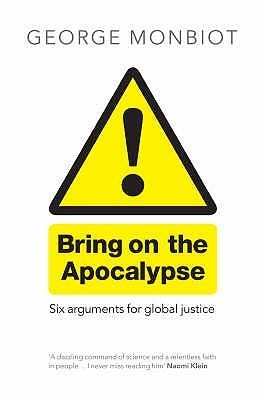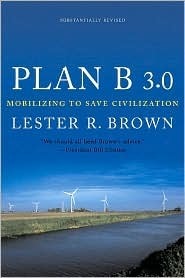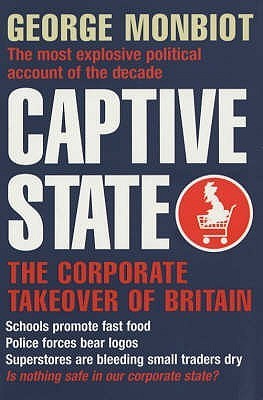
Bring on the Apocalypse
Book Description
The end is not just nigh; it’s already here. In "Bring on the Apocalypse," George Monbiot confronts the cataclysmic chaos of climate chaos and societal collapse with an unflinching gaze. Society teeters on the brink, and the consequences of inaction thunder through every page. Monbiot challenges conventions, presenting radical ideas that jolt the mind and ignite the soul. With incisive wit and relentless urgency, he urges a reckoning, laying bare the stakes of our collective future. As the clock ticks down, one question looms: Will humanity rise to confront the storm, or will it be swept away by its own indifference?
Quick Book Summary
"Bring on the Apocalypse" by George Monbiot is a searing collection of essays examining the intersection of environmental crisis, societal indifference, and political inertia. Monbiot challenges readers to confront the reality that the apocalypse is not a far-off possibility but an unfolding series of interconnected disasters—climate change, global inequality, and ecological destruction. He exposes the failings of governments and corporate interests, dissecting their complicity in accelerating collapse. With sharp critique and compelling urgency, Monbiot advocates for profound systemic change, urging individuals and societies to abandon complacency. He critiques mainstream thinking, questions the very structures that underpin modern life, and makes the case for radical reimagining of our priorities and values. Monbiot's essays serve as both a warning and a rallying cry: unless we act boldly and collectively, irreversible catastrophe will be our legacy.
Summary of Key Ideas
Table of Contents
The Reality of Environmental Collapse
George Monbiot opens with the stark assertion that environmental catastrophe has already begun. He details the devastating evidence: rising global temperatures, mass extinctions, and intensifying natural disasters. Monbiot situates these crises in the immediate present, dispelling the myth that apocalypse is relegated to some distant future. He argues that the unfolding disaster is both ecological and social, with communities worldwide already experiencing the consequences. His vivid examples illustrate the global scale of degradation and the interconnectedness of climate, famine, and conflict.
Complicity of Political and Corporate Systems
Monbiot sharply criticizes the political and corporate engines driving this collapse. He dismantles the excuses of those in power, exposing how economic systems and political agendas prioritize short-term profit over long-term survival. Monbiot insists these actors are not merely negligent but actively complicit, thwarting meaningful action on climate change. Through meticulous critique, he underscores how corporate interests capture governments, shape policies, and delay transformative change. This section is a call to recognize complicity at all levels of governance.
Challenging Societal Norms and Complacency
Turning inward, Monbiot scrutinizes societal attitudes that enable disaster. He interrogates popular narratives of normalcy and the myths of endless progress, highlighting their role in stifling collective action. The essays challenge readers to question deeply held assumptions about consumption, convenience, and growth. Monbiot contends that societal complacency is a significant barrier—apathy, denial, and comfort blind people to the scale of the crisis and the urgent need for change.
Envisioning Radical Change
Amid bleak analysis, Monbiot sketches a blueprint for radical transformation. He advocates for systemic overhaul and new values centered on sustainability and justice. These essays explore alternative models of economics, democracy, and community, encouraging bold reimagination rather than incremental reform. Monbiot calls for mass mobilization and collective empowerment, arguing that only a profound shift in priorities can avert further disaster and craft a livable future.
Urgency and Individual Responsibility
Ultimately, Monbiot stresses the urgency of personal and collective action. He confronts the reader with a moral choice: remain complicit in the status quo or join a movement for transformation. Through passionate prose, Monbiot impels readers to push boundaries, confront uncomfortable truths, and refuse futility. The book closes with a clear message: survival—and justice—depend on our willingness to awaken and act before it is too late.
Download This Summary
Get a free PDF of this summary instantly — no email required.





